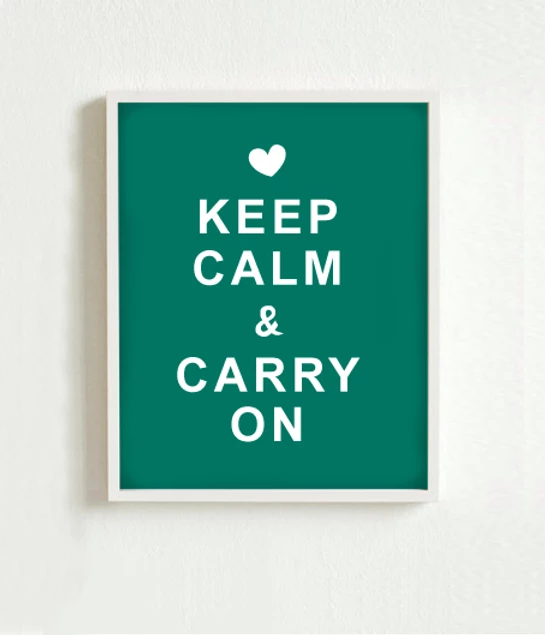Antidepressant & Benzo Withdrawal: Meeting The Challenge Of Your Life
Mar 07, 2022
What are the biggest milestones in your life thus far? What things do you count among your biggest accomplishments?
Maybe something involving home, school, or work comes to mind. Maybe something involving health.
Maybe you’ve built a satisfying professional or family life. Maybe you’ve recently saved money for a new car or paid down your debt. Maybe you’ve quit smoking or you’ve lost fifty pounds.
All of these things are grand accomplishments! They are challenges that take a lot of heart and determination to meet, no doubt about it.
But make no mistake about this: If you are currently in the midst of tapering off of a benzodiazepine or antidepressant medication (or if you’ve already quit one and are experiencing withdrawal effects), then you are in the process of meeting the largest challenge of your life. There are few things that compare.
If you are in the process of moving from a life on such medications to a life without them, then you are in the midst of navigating one of the most monumental transitions that modern man can make. And one of the most rewarding.
Don’t fear the antidepressant/benzodiazepine withdrawal & healing process, but take it seriously, and constantly congratulate yourself for what you are doing. It is a challenge that, unfortunately, many people give up on, and many more never even attempt.

I can still remember when I was first prescribed antianxiety medications. I was twenty-one years old and entering my final year of journalism school at UW-Madison. I was taking summer classes to keep my graduation timetable on schedule, and I’d begun experiencing terrible panic attacks in one of my classrooms.
That classroom will forever live in infamy for me. It was a tiny, windowless little rectangle of an antiquated room; it was carpeted in vomitous orange, paneled in dusty wood, and lacked anything in the way of ambience or inspiration. It felt suffocating.
The tables in that classroom were arranged into a square to facilitate small-group discussion, but the arrangement mostly served to facilitate a sort of fishbowl feeling for me. When my face began turning red and I began sweating—when my heart began pounding and some terrible pressure in my head began swelling—I felt as if everyone was staring at me, wondering what my problem was. And I felt frozen.
There I was, a free man in a free country, but I didn’t feel as if I could simply leave the room when the strange feelings intensified. So I suffered, and suffered some more. It would take me most of the day to calm down from those attacks, and then I would begin worrying about the next one. I’d grab a beer from the fridge and play my guitar on the couch to try forgetting the whole thing, but the anxiety was consuming me.
I white-knuckled it and finished that summer class— to the detriment of my well-being—but by the end of the semester I was ready to drop out of school.
However, I didn’t drop out. Instead, at the suggestion of my parents, I saw a family doctor back home, a man who prescribed me the SSRI Paxil and a small bottle of Xanax.
I didn’t know what to think about taking those medications.
Now, it must be noted that I was a proud and passionate university student. I was someone who got all A’s (only one fluke B in the course of my first seven and a half semesters), and I wanted, more than anything, to graduate successfully; however, I didn’t want to think that the only reason I’d graduated successfully was because some foreign medications had “fixed me.”
It was a real mental dilemma. Should I begin swallowing the pills? If I do take them, I wondered, and I do end up graduating as planned, would it be me doing the work, or would it be, in effect, the medications doing the work for me?
But I resolved to stop asking such questions. I began taking the Paxil and Xanax, I finished my senior year with straight A’s, and I graduated in the top 2 percent of my class, which numbered nearly 4,000 students.
I’m still extremely proud of myself for finishing out college, even if perhaps I should have taken a year off to simply catch my breath and deal with whatever anxiety was plaguing me. And I’m proud of many other accomplishments in my life, too. I’m proud of my seventeen-year marriage (as those of you out there who are married know, it takes work); I’m proud of various professional accomplishments; I’m proud of the many writings I’ve done over the years; and I’m proud of the fact that I’ve quit cigarettes, gotten into good physical shape, and become a regular runner.
But perhaps I’ll never be as proud of anything as I am of having quit the Paxil and Xanax after nearly a decade and a half of use. That, as it turned out, was the challenge of my life.
It was a challenge that didn’t simply last a semester or even a year; I began tapering my medications around December of 2012, I took the last doses in January of 2014, and then I fought through a protracted prescription drug withdrawal that sapped my strength and left me, at times, questing my sanity and wondering if I would die.
Antidepressant withdrawal and benzodiazepine withdrawal are no joke. They are an international health crisis at this point, and they were the seminal health struggle of my adult life.
But I continued to move forward; with the help of my wife, my family, and my God, I survived the worst of days, made sense of my situation, and slowly began rebuilding my strength. And it is a rebuilding process. Again, it is a transition. A monumental one. Both the body and mind become extremely accustomed to operating beneath the pixie-dust filters of antidepressant and benzo medications, and when they are taken away our body and mind are forced to once again make sense of daily processes, stimuli, needs, emotions, and thoughts without the medications around.
And as much as the withdrawal and healing process is a physical one—a process of GABA and Serotonin receptors regenerating—it is also a psychological, emotional, and spiritual one. It is a process of learning how to separate symptoms from self; it is a process of learning how to once again live at peace with ourselves; it is a process of learning how to manage stress and anxiety through natural means, which takes practice; and it is a process of finding God and fulfillment and inner peace without medications. Because really, isn’t that what we are all seeking in the first place? God, fulfillment, excitement, and inner peace?
Are you searching for inner peace right now? If so, I want you to know that it will arrive for you, but it just takes a little time and few adjustments.

If you are currently in the process of tapering, withdrawing, and healing from antidepressant medications or benzodiazepine medications, remember that it is a process. Be patient with your symptoms, and yourself, as you go through the varied stages and continue to find your footing and strength.
Remember, this is the challenge of your life, and many days just surviving will be the accomplishment of your life! Feel very proud about what you are doing, and never get discouraged that things are “taking too long.”
Real changes take time, and real good health—the kind without prescription meds—takes consistent effort. We must consistently care for ourselves physically, mentally, emotionally, and spiritually. There are no shortcuts. The trick, then, is to eventually make real self-care enjoyable because it is a part of our larger goal-setting structure and worldview. It is part of what gives us fulfillment.
Some people might tell you that making the transition from a life on medications to a life without them is impossible. Doctors, psychiatrists, and even concerned family members might tell you that making that transition is impossible. But I know that isn’t the case.
I’ve done it, and it has given me a sense of accomplishment and inner strength that continues to spill over into every other area of my life. It truly is meeting the challenge of a lifetime! It can be done, it just takes time. So be patient with yourself. And be very proud of what you are doing.
Would You Like to Join My Members Only Support & Success Community?
Stay connected with news and updates!
Join my mailing list to receive the latest posts and updates from The Lovely Grind.
Don't worry, your information will not be shared.
We hate SPAM. We will never sell your information, for any reason.
